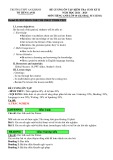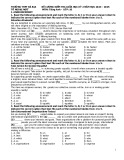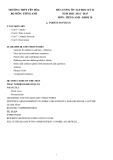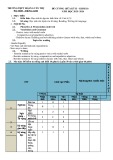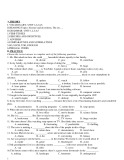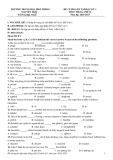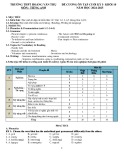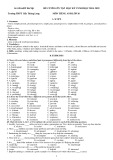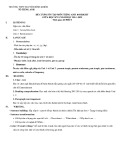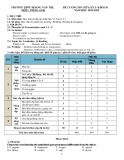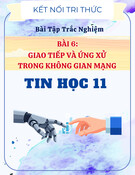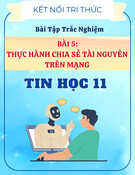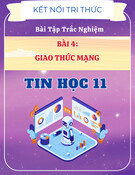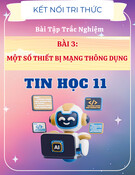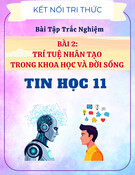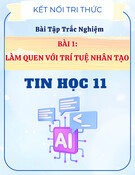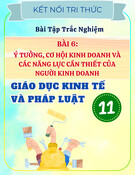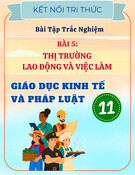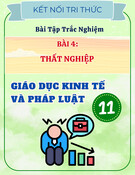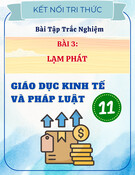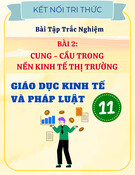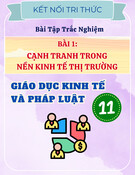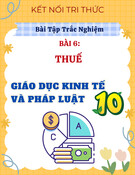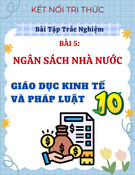
TRÖÔØNG TRUNG HOÏC PHOÅ THOÂNG LONG
THÔÙI
TOÅ TIEÁNG ANH
HOÏ TEÂN HOÏC SINH:
LÔÙP:
NAÊM HOÏC: 2007 - 2008

GIAÙO VIEÂN BIEÂN SOAÏN
Unit 1 Unit 4: Mr. Thaønh
Unit 5 Unit 7: Ms. Toá Oanh
Unit 8 Unit 10: Ms. Thuyø Döông
Unit 11 Unit 13: Ms. Vaân Anh
Unit 14 Unit 16: Ms. Thanh Mai
2

UNIT: 1 A DAY IN THE LIFE OF…………..
VOCABULARY:
- exact / 1g’z`kt/ (adj)
-> exactly (adv)
- plot of land (n)
- harrow /’h`r6$/ (v)
- plough /pla$/ (v)
- pump /p^mp/ (v)
- lead – led – led /li:d/ (v)
- bank /b`7k/ (n)
- peasant /’peznt/ (n)
- buffalo /’b^f6l6$/ (n)
-> lead the buffalo to the field (exp)
- transplant /’tr`nspla:nt/ (v)
-> do the transplanting (exp)
- take a rest (exp)
- Civic Education /’s1v1k ‘ed2ukeù1~n/ (n)
- Information Technology /1nf6’me1~n tek’n4l6d2i/ (n)
- Maths /m`8s/ (n)
- Physics /’f1z1ks/ (n)
- literature /’litr6t~6/ (n)
- biology /ba1’4l6d21/ (n)
- Chemistry /’keùm1str1/ (n)
- physical education /’f1z1kl ‘ed2uke1~n/ (n)
- Geography /d21’4gr6f1/ (n)
- history /’h1stri/ (n)
A.PRONUNCIATION AND STRESS
I. Choose the word that has the underlined part pronounced differently from the others
1. a. field b. heat c. meet d. peasant
2. a. ready b. meat c. defeat d. beat
3. a. kitchen b. history c. finish d. sometime
4. a. children b. minute c. excited d. dinner
5. a.invited b. needed c. looked d. decided
II. Choose the word that has different main stress from the others.
1. a. usually b. afternoon c. although d. buffalo
2. a. tobacco b. breakfast c. children d. several
3. a. routine b. tobacco c. continue d. neighbour
4. a. interest b. alarm c. peasant d. sometime
5. a. kitchen b. exactly c. family d. harrow
B. READING
I. Read the text below and choose the correct word or phrase for each space:
Mr. Ly is a farmer. He always gets (1) at 4:30 every morning. He goes down to
the kitchen to boil (2) water for his morning tea. After drinking several cups of
tea (3) having a quick breakfast. He leads the buffalo to the field. (4)
takes him 45 minutes to get ready. He (5) the house at a quarter past five and
arrives in the (6) at 5:30. He (7) and harrows his plot of land and then
smokes local tobacco (9) the break. He continues working (10) 10:30.
He goes home, takes a short rest and has lunch with his family at 11:30.
1. a. up b. down c. over d. in
2. a. an b. a c. some d. any
3. a. but b. and c. however d. then
4. a.This b.It c.That d. Which
5. a. quits b. goes c. comes d. leaves
6. a. area b. field c. site d. ground
7. a. ploughs b. takes c. digs d. brings
3

8. a. nap b. lunch c. sleeping d. rest
9. a. in b. for c. at d. of
10. a. to b. by c. at d. until.
II. Read the passagecarefully and answer the questions below.
Every morning I get up at six. The first thing I do is to wash the dishes my family
dirtied the day before. Then I cook breakfast. We eat at about seven fifteen. Usually we
have bread with butter, sometimes we have rice or boiled sweet potatoes.
It takes me about ten minutes to walk to school, and school begons with an
assembly period at seven forty-five. There are fifteen hundred children in our school and
so we meet in three separate assemlies: the infant department, the middle department,
and the senior department. We always listen attentively to the head mistress then
We have seven periods from eight to one. We study Maths, Geography, Historty,
Art and Crafts, and English. I like English best and next to that, Mathematics. At ten, we
have a chance to eat an orange and some peanuts. At noon, we do not rest. At one, we
I go home for lunch. But this time, my sister Patricia gets the meal. We often eat
yams with soup and some other dishes. After lunch, I usually slep for half an hour. In the
afternoon, I often play netball.I sometimes skip, run, and jump with the other girls.
At about six or six thirty we have dinner. Either my sister or I cook it. The meal is
simpler than the mid-day meal. We eat fruit or rice, and sometimes we have bread and
tea. Then in the evening, I do my homework and go to bed at ten.
1. What is the fisrt thing does the auther have to do?
- .
2. What time do her have breakfast?
- .
3. How long does it take her to walk to school?
- .
4. What time does the school begin?
- .
5. How many assemblies are there in her school?
- .
6. How many periods does she study everyday?
- .
7. What subjet does she like best?
- .
8. What do she and her sister eat for lunch?
- .
9. What is lunch considered meal of a day?
- .
10. Is their dinner more complex than the mid-day meal?
- .
C. LISTENING
Hello everyone, my name is Lam. I’m a driver in Ho Chi Minh City. I usually
have a busy working day. I get up at in the morning. I start work at six. My
first passenger is usually an old . I take from District 1 to . After I
drop him at a cafeù near Ho Chi Minh City College of Education, I pedal to Thai Binh
market. My next passenger is a who does there every two days. I
help her put all her purchases into the cyclo and then take her to her shop Tran Hung Dao
Street. At about ten thirty I toward Nguyen Thi Minh Khai school. There park
my cyclo, chat with some of my fellows and wait my third passengers. They are school
pupils, a girl and a boy. I take them home. At twelve I have lunch at a near
D. WRITING
I. Use the prompts to write complete sentences about a day in my life.
1. I / get up / six o’clock / every morning.
- .
2. I / have / breakfast / my dad.
- .
4

3. My father / take / in his car / the station.
- .
4. He / always / set off / half past six / he / pass / the station / quarter to seven.
- .
5. My train / leave / ten past seven / arrive / Oxford / twenty minutes later.
- .
6. I / go straight / school / I / finish / homework.
- .
II. Write a complete paragraph based on part I, using the adverbs such as firstly, second, next, then…
I usually get up at six o’clock every morning. Firstly,
. E. LANGUAGE FOCUS: Choose the best answer for each sentence
1. Peter usually up at 6 o’clock.
A. get B. is getting C. got D. gets
2. She dishes every day.
A. washes B. washed C. is washing D. wash
3. The Sun in the East.
A. is rising B. rose C. rise D. rises
4. They two years ago.
A. left B. had left C. leave D.have left
5. I have lived in HCM city since I two years.
A. were B. have been C. was D. am
6. The alarm goes at 5:30
A. of B. off C. up D. down
7. We are contented what we do.
A. on B. in C. with D. for
8. He is interested reading novels.
A. on B. at C. in D. about
9. I know how she felt.
A. exactly B. exact C. exacting D. exactness
10. Are you with your present work?
A. satisfied B. satisfy C. satisfying D. satisfaction
11. He is not really interested in on the farm.
A. to work B. work C. worked D. working
12. Kate _________to school last week because her mother _______ill.
A. didn’t go/ was B. doesn’t go/ is C. wasn’t going/ are D. hasn’t gone/
13. Amy ________her grandmother every Sunday.
A. visited B. was visiting C. visits D. has visited
14. My children ___________in the park with their uncle Joe right now.
A. is playing B. has played C. are playing D. have
15. We _______to London once five years ago.
A. travels B. have traveled C. traveled D. were traveling
16 The alarm at 5 o’clock evry morning.
A. goes off B. rings C. sounds D. A & B
17. It often takes me 40 minutes to in the morning.
A. get ready B. do C. prepare D. A & B
18. We are contented with what we do. “contented with” is nearest in meaning to…
A. angry with B. bored with C. satisfied with D. annoyed with
19. We work about two hours before we a rest.
A. get B. take C. do D. make
20. Mr Vy is a farmer. The synonym of “a farmer” is:
A. a driver B. a peasant C. teacher D. a worker
21. My kids spend hours on the phone to their friends.
5

